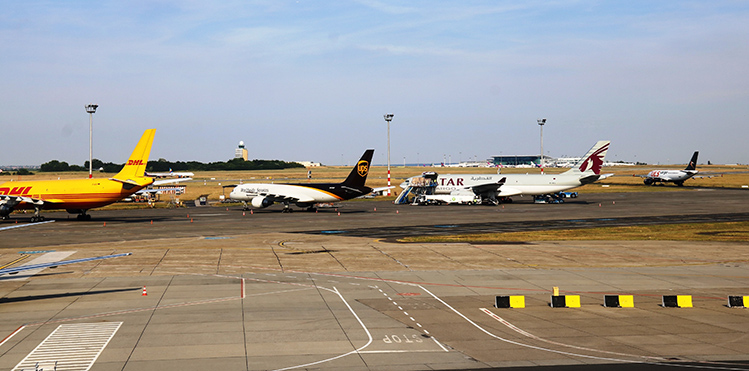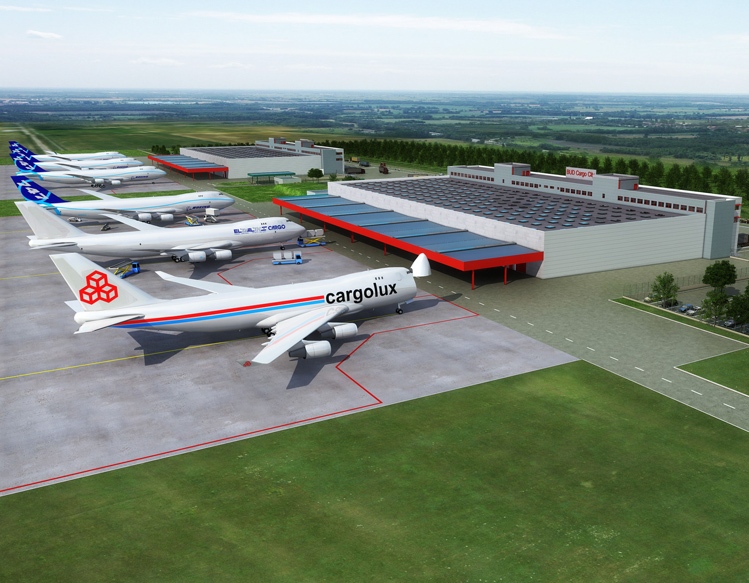Budapest Airport has seen dynamic growth of at least 11.3% in cargo volume so far in 2016. The airport has handled 6,770 tonnes of air cargo and while the Hungarian capital city airport’s turnover is increasing, the cargo industry throughout Europe has not seen such development. A growth of only 2.7% was recorded on the continent in May, while cargo volumes declined on the American continent and in Africa. Furthermore, the 11.3% growth rate at Budapest Airport from the beginning of the year stands out among major international hubs, such as Hong Kong, which reported -1.1%, Frankfurt -1.7%, and Beijing -5.1%.
According to the airport, a large contributing factor in the growth of cargo volume in Budapest was the re-launch of Qatar Cargo this March. The carrier’s Airbus A330F can carry as much as 60 tonnes of goods to Doha on a single flight, to almost any point of the globe via the network of Qatar Airways. Additionally, cargo airlines such as Luxembourg-based Cargolux and Turkish Cargo, which have been operating in Budapest for a long time, also continued to put in a strong performance.

A large contribution to the growth of cargo volume in Budapest was the re-launch of Qatar Cargo this March. József Kossuth, Cargo Development Manager, Budapest Airport: “Long-haul passenger flight contributed significantly to the volume uplift too, for example the Beijing flight of Air China or the Toronto flight operated by Air Canada Rouge.”
Additionally, cargo airlines such as Luxembourg-based Cargolux and Turkish Cargo, which have been operating in Budapest for a long time, also continued to put in a strong performance.
“Long-haul passenger flight contributed significantly to the volume uplift too, for example the Beijing flight of Air China or the Toronto flight operated by Air Canada Rouge,” says József Kossuth, Cargo Development Manager, Budapest Airport. “It is also an indication of the performance of the Hungarian economy that on the Air China flight to Beijing almost the full cargo compartment is booked, which means 10-12 tonnes per flight. According to our forecasts, all conditions are pointing towards Budapest evolving into the air cargo hub of Eastern Europe within a short period of time.”
Meanwhile, based on traffic forecasts – as part of the 50-billion-HUF (€160m) development programme called ‘bud:2020’ – Budapest Airport has commenced construction of a new logistics base right next to Terminal 1 for one of the major European parcel services. Physical construction is underway; the value of the project is close to HUF three billion (€10m). In addition, Budapest is preparing for construction of a new air cargo base – the so-called Cargo City – in close proximity to Terminal 2, towards Vecsés, where warehouse and office capacity for handling up to 200,000 tonnes per year is going to be implemented in the next few years.

Meanwhile, as part of the 50-billion-HUF (€160m) development programme BUD 2020, Budapest is preparing for construction of a new air cargo base, Cargo City, in close proximity to Terminal 2, towards Vecsés, where warehouse and office capacity for handling up to 200,000 tonnes per year is going to be implemented in the next few years.







